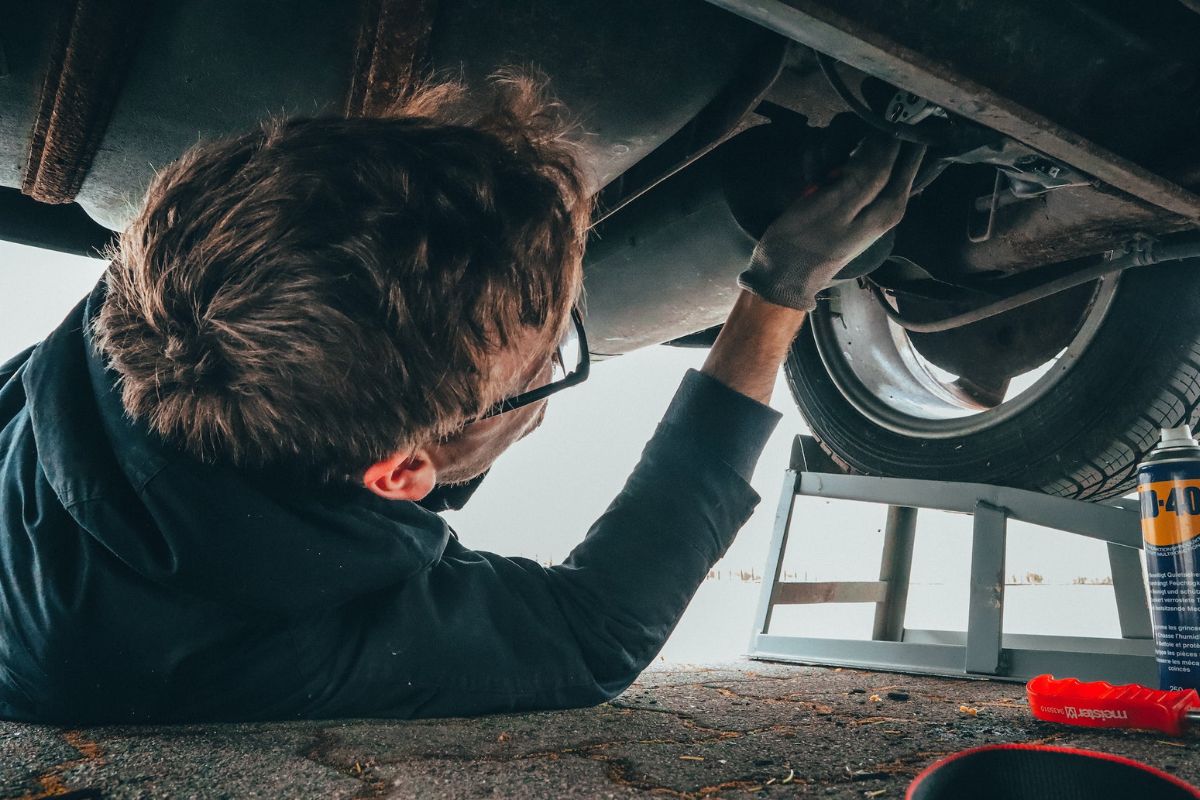Are you in the market for a reliable, budget-friendly used car?
Look no further than the beater car, an option that will save you thousands of dollars and still get you from point A to point B.
Used cars consistently outsell new cars by a significant margin, and beater cars make up a large portion of those transactions.
In this article, we will guide you through the process of finding the perfect beater car to suit your needs.
It’s essential to know that beater cars generally range between $2,000 to $8,000 in price, making them an incredibly affordable alternative to buying a brand-new vehicle.
As you embark on your journey to find a beater car, you’ll discover options such as the Saturn S-Series, which are reliable, fuel-efficient, and easy to find parts for, despite Saturn no longer manufacturing cars.
Not only do beater cars save you on the initial purchase price, but they also enable you to avoid those dreaded monthly car payments and the hassle of dealing with credit checks and other financing concerns that come with buying a new car.
Keep reading to learn more about how to find the perfect beater car for your needs, while staying within your budget.
Post Contents
What Is a Beater Car? Understanding Beater Cars

Characteristics of a Beater Car
A beater car is an affordable, cheap, and usually older vehicle that provides basic transportation from point A to point B.
Beater cars are highly suitable for individuals with a limited budget or those needing a reliable vehicle for daily commutes.
Key characteristics of beater cars include:
- Price range: Typically, beater cars cost between $500 and $2,000, although prices can vary depending on factors like mileage, age, and condition.
- Aesthetic flaws: Beater cars often have cosmetic issues like faded paint, dents, or worn out interiors, but these do not affect their essential functionality.
- High mileage: Most beater cars have endured thousands of miles, but they still manage to get the job done when it comes to transportation.
- Easy maintenance: Beater cars are generally simple to fix when something goes wrong or when parts wear out, thanks to their straightforward mechanics and accessible replacement parts.
Pros and Cons of Owning a Beater Car
Owning a beater car, like any other vehicle, has its pros and cons.
Pros
- Affordability: With a low price tag, a beater car is budget-friendly and ideal for people who need a reliable used car without breaking the bank.
- Less stress: A beater car’s value is less than that of a newer vehicle, so you may worry less about potential damage or theft.
- Lower insurance costs: Insurance premiums typically cost less for older vehicles, so expect to see savings in this area.
- Mechanical simplicity: Beater cars often have less complex technology, making them easier to maintain and repair.
Cons
- More frequent repairs: Due to their age, high mileage, and general wear, beater cars may require more repairs or maintenance.
- Limited features: Beater cars may lack modern comforts and advanced technologies, such as adaptive cruise control, heated seats, or built-in navigation systems.
- Less fuel-efficient: As beater cars are older, they might have less efficient engines than newer models, possibly costing you more in fuel expenses.
- Appearance: A beater car may not win any beauty contests, but that’s not its primary purpose – it gets you from point A to point B on a budget.
In summary, a beater car is an affordable option for those on a limited budget or in need of a cheap, used vehicle.
They have distinctive characteristics, such as a low price range, aesthetic flaws, high mileage, and easy maintenance.
Additionally, there are pros and cons to owning a beater car, including affordability, less stress, lower insurance costs, and mechanical simplicity but also more frequent repairs, limited features, less fuel-efficient engines, and potentially unattractive appearances.
Most Reliable Beater Car Brands

When it comes to finding a cheap, used car, reliability is a crucial factor.
Below, we’ve outlined some of the most reliable beater car brands and highlighted specific models for you to consider.
Honda Models
Honda is known for its reliable and fuel-efficient vehicles, which can serve as great beater cars. Some notable options to keep in mind include:
- Honda Civic: This compact car has a long history of reliability and affordability. Look for older models in the 90s or early 2000s.
- Honda Accord: For those who prefer a mid-size sedan, the Accord is another popular choice. Like the Civic, older models from the 90s to early 2000s are great options for beater cars.
Toyota Models
Toyota is another brand well-known for reliability and longevity. Consider these Toyota models for your beater car search:
- Toyota Corolla: This compact car is synonymous with dependability. Older models, particularly those from the late 90s or early 2000s, will serve you well as a budget-friendly beater.
- Toyota Camry: As a mid-size sedan, the Camry is a solid alternative to the Accord. Look for similar model years (late 90s to early 2000s) for the best beater cars.
Ford Models
Ford may not always top the reliability lists, but they do offer some beater-friendly options:
- Ford F-150: While not a car, this pick-up truck is known for its durability and affordability, especially models from the ’93 to ’96 era. If you need a workhorse at a low price, an older F-150 might be just the ticket.
Other Brands to Consider
While Honda and Toyota tend to dominate the conversation for reliable beater cars, there are a few other brands worth considering:
- Mazda: The Mazda3 and Mazda6 are often noted for their reliability in terms of compacts and mid-size sedans, respectively.
- Scion tC: As a sub-brand of Toyota, Scion vehicles also benefit from Toyota’s reliable reputation. Keep your eyes peeled for a used Scion tC.
- Nissan Xterra: This SUV may not be as fuel-efficient as some other options, but it is known for its durability. If you’re seeking a reliable, budget-friendly SUV, consider the Nissan Xterra.
Throughout your search, always prioritize maintenance records, car history, and overall condition to ensure you’re getting the most reliable beater car for your money.
Conducting Thorough Research

Before diving into the world of beater cars, it’s important to conduct thorough research to ensure you’re making an informed decision.
In this section, we’ll focus on two key sub-sections: Checking Vehicle History and Analyzing the Vehicle’s Mileage.
Checking Vehicle History
To start, you need to check the vehicle history of the used car you’re considering.
This can help you uncover any potential issues or red flags that could impact its performance or safety.
To do this, grab the car’s VIN (Vehicle Identification Number) and run it through a service like Carfax.
Doing so will provide you with important information such as:
- Previous accidents or damage
- Maintenance records
- Title history (e.g., clean, salvage, rebuilt)
By evaluating the vehicle’s history, you can get a better understanding of how well the car has been maintained and whether it might have any hidden issues.
Analyzing the Vehicle’s Mileage
Another essential factor to consider when researching beater cars is the mileage on the vehicle.
Mileage can be an indicator of the car’s condition and the potential need for future repairs.
When looking at mileage, consider the following guidelines:
- Lower Mileage: Generally, a car with lower mileage is better, as it means fewer wear and tear on its components. However, don’t rely solely on the mileage to determine the car’s condition. A low-mileage vehicle that has not been properly maintained could still have issues.
- Average Mileage: The average annual mileage is around 12,000 miles. When looking at a used car, compare its current mileage to this average and factor in the car’s age. If a vehicle’s mileage is significantly lower than average, it might indicate better overall condition.
- High Mileage: Be cautious when considering a high-mileage beater car. High mileage indicates that the car has been extensively used, which could mean it requires more maintenance and repairs in the near future.
Inspecting the Car’s Condition
Evaluating the Exterior and Interior
When examining a potential beater car, always start by checking the exterior and interior.
Look for signs of rust, dents, and scratches on the car’s body. Pay close attention to the wheel wells, door bottoms, and panels beneath the doors.
Open and close each door, the hood, and the trunk to see if they are functioning correctly.
For the interior, ensure that the seats, carpet, and headliner are in satisfactory condition.
Turn on the vehicle and test all electronics, including the radio, air conditioning, and power windows to ensure they are working properly.
Inspect the upholstery for stains or tears, and take note of any unpleasant odors that could indicate water damage.
Assessing Mechanical Aspects
Moving on to the mechanical aspects of the car, first focus on the engine.
Check for any oil or coolant leaks. Inspect the belts, including the alternator, for signs of wear or damage.
If the car has a manual transmission, pay close attention to the clutch and the smoothness of gear shifting.
Here are some common problems and parts to examine:
- Engine: Check for excessive noise or visible leaks.
- Transmission: Shift through all gears to ensure smooth operation.
- Suspension: Drive over bumps to detect any unusual noises or poor handling.
- Brakes: Test the brakes for adequate stopping power and listen for any grinding or squeaking sounds.
- Tires: Evaluate the tire wear and check the tread depth.
Keep in mind that every used car will have its quirks and may require minor repairs.
The important thing is to identify any major issues before making a purchase.
Take the time to inspect and evaluate each potential beater car thoroughly, so you can feel confident in your decision and enjoy your new ride without any surprises along the way.
How to Find a Beater Car
Top Picks for Beater Cars
When searching for a beater car, you’ll want to look for reliable and inexpensive options.
Here are some popular choices that fit the bill:
- Honda Civic: Known for its reliability and longevity, the Civic is an excellent choice for a low-cost used car.
- Toyota Camry: Another reliable option, the Camry offers long-lasting performance and typically has reasonable gas mileage.
- Toyota Corolla: As one of the most popular and durable compact cars, the Corolla is a popular choice for a beater.
- Honda CR-V: If you’re looking for a budget-friendly SUV, the CR-V is a great choice that offers durability and affordability.
- Ford Focus: The Focus is a cost-effective option with decent gas mileage and a solid reputation for reliability.
- Mazda Miata: If you’re looking for a fun and affordable sports car, the Miata is one to consider.
- Ford Ranger: A solid, inexpensive choice among pickup trucks, the Ranger is known for its reliability.
Fuel Efficiency and Gas Mileage
When selecting a beater car, you might also want to consider its fuel efficiency and gas mileage.
Some of the aforementioned cars are more fuel-efficient than others.
Here’s a breakdown of their approximate gas mileages:
| Car | Gas Mileage (City/Highway MPG) |
|---|---|
| Honda Civic | 32/42 |
| Toyota Camry | 28/39 |
| Toyota Corolla | 30/40 |
| Honda CR-V | 28/34 |
| Ford Focus | 27/40 |
| Mazda Miata | 26/35 |
| Ford Ranger | 21/26 |
Keep in mind that these numbers may vary depending on the specific model and year of each vehicle.
Consider these approximate gas mileages when you’re browsing potential beaters to find the one that best suits your needs and budget.
Budgeting for a Beater Car

Determining an Ideal Purchase Price
To find a cheap and reliable beater car, it’s crucial to set a reasonable budget.
As a rule of thumb, aim for a purchase price of less than $2,000. This will ensure you’re getting a low-cost car without sacrificing reliability.
To help establish a budget, consider the following factors:
- Car value: Research the value of the cars under consideration, and compare them to the Kelley Blue Book (KBB) price. This will give you a sense of the market value.
- Your personal finances: Determine how much money you have available to spend on a beater car without stretching your budget. Make sure you can afford the initial purchase as well as ongoing costs like insurance, registration, and maintenance.
Accounting for Potential Repairs and Maintenance
When purchasing a cheap used car, it’s essential to factor in potential repairs and maintenance costs.
Since you’re likely buying an older vehicle with more miles on it, accounting for these costs upfront can prevent unpleasant surprises and ensure you stay within your budget.
Consider the following tips:
- Inspect the car: Perform a thorough inspection of the vehicle, checking for any visible damage or signs of wear and tear.
- Test drive: Take the car for a test drive to ensure it functions well and identify any potential issues.
- Get a pre-purchase inspection: Have the vehicle inspected by a trusted mechanic to get a better understanding of the car’s condition and any repairs that may be needed.
- Research common issues: Learn about common problems with the make and model you’re considering and their associated repair costs. This will help you get a more accurate estimation of maintenance expenses.
- Set aside funds: Establish a budget for repairs and maintenance, and set aside money to cover these costs. This way, you’ll be prepared for any repairs or routine maintenance needed after purchasing your beater car.
By following these tips and establishing a budget for both the purchase price and potential repairs and maintenance, you’ll be well on your way to finding a reliable and affordable beater car.
Closing the Deal

Negotiating Used Car Prices
When it comes to finding a cheap, used car, negotiation can be your best ally.
To get the best possible price, make sure you call multiple dealerships and compare their offers.
Let each dealer know what the others have offered and ask if they can beat it.
This method allows you to pre-negotiate the best possible price over the phone, so all you have to do is walk in and pay.
If you’re buying from an individual, don’t be afraid to haggle either.
Remember, the seller likely wants to get rid of the car, so they may be more willing to work with your budget.
Validating Resale Value and Depreciation
Understanding the resale value of a used car is crucial to ensure you’re getting the most bang for your buck.
Research the vehicle’s make, model, and production year to get a general idea of its depreciation rate.
Some ways to validate resale value and assess depreciation include:
- Checking used car pricing guides (such as Kelley Blue Book or NADA)
- Comparing similar cars in the market
- Taking into account the car’s mileage, condition, and previous ownership history
It’s crucial to run a vehicle history report to evaluate the car’s background and check for any potential red flags, such as accidents or title issues.
This information will help you better understand the car’s value and can aid in negotiations.
To summarize, when searching for a cheap, used car, make sure to negotiate and compare prices, research the vehicle’s resale value and depreciation, and always get a vehicle history report.
By following these steps, you’ll be well on your way to finding a beater car that fits your needs and budget.
Maintaining Your Beater Car

Preventing Common Issues
To keep your beater car running smoothly, it’s essential you take preventive steps against potential problems. These might include:
- Regularly checking fluids: Make sure to monitor the levels of engine oil, coolant, brake fluid, and transmission fluid. Top-off or change the fluids as needed.
- Inspecting the battery: Clean corrosion from the battery terminals using a solution of baking soda and water. Applying an anti-corrosion chemical is also a great idea to avoid any future issues.
- Checking tires: Regularly inspect your tires for proper inflation, good tread depth, and overall condition. Rotate and balance them as needed to prolong their lifespan.
Keep in mind that while beater cars are generally budget-friendly, unexpected breakdowns may still occur.
Familiarize yourself with the common issues associated with your particular vehicle model to stay ahead of potential problems.
Consulting a Trusted Mechanic
When it comes to maintaining your beater car, having a trusted mechanic in your corner is invaluable.
They will aid you in finding solutions to issues you might not have the expertise to tackle on your own.
Besides getting repairs done, they can also provide valuable advice on how to properly maintain your car and extend its lifespan.
When you’re selecting a mechanic, consider the following:
- Experience: Look for a mechanic with experience working on the make and model of your beater car or with a strong background in handling older vehicles.
- Reputation: Ask friends, family, or coworkers for recommendations. You can also read online reviews to get a sense of their work quality and customer satisfaction.
- Affordability: While cost should not be the sole factor in your decision, finding a mechanic with reasonable prices can help save money in the long run.
Following these tips for maintaining a beater car will help you get the most out of your investment.
With proper care and a bit of luck, you may find that your trusty old vehicle continues rolling down the road longer than you ever imagined.






























